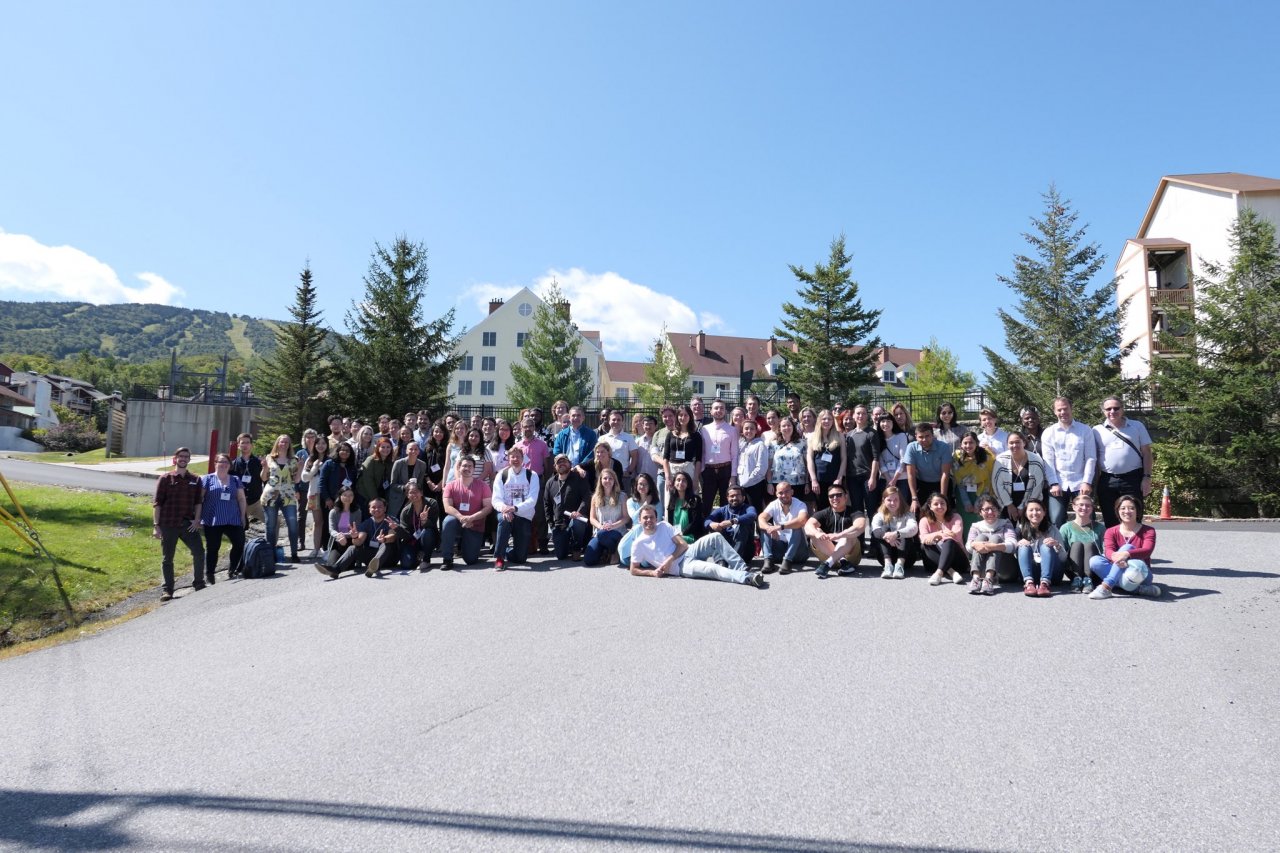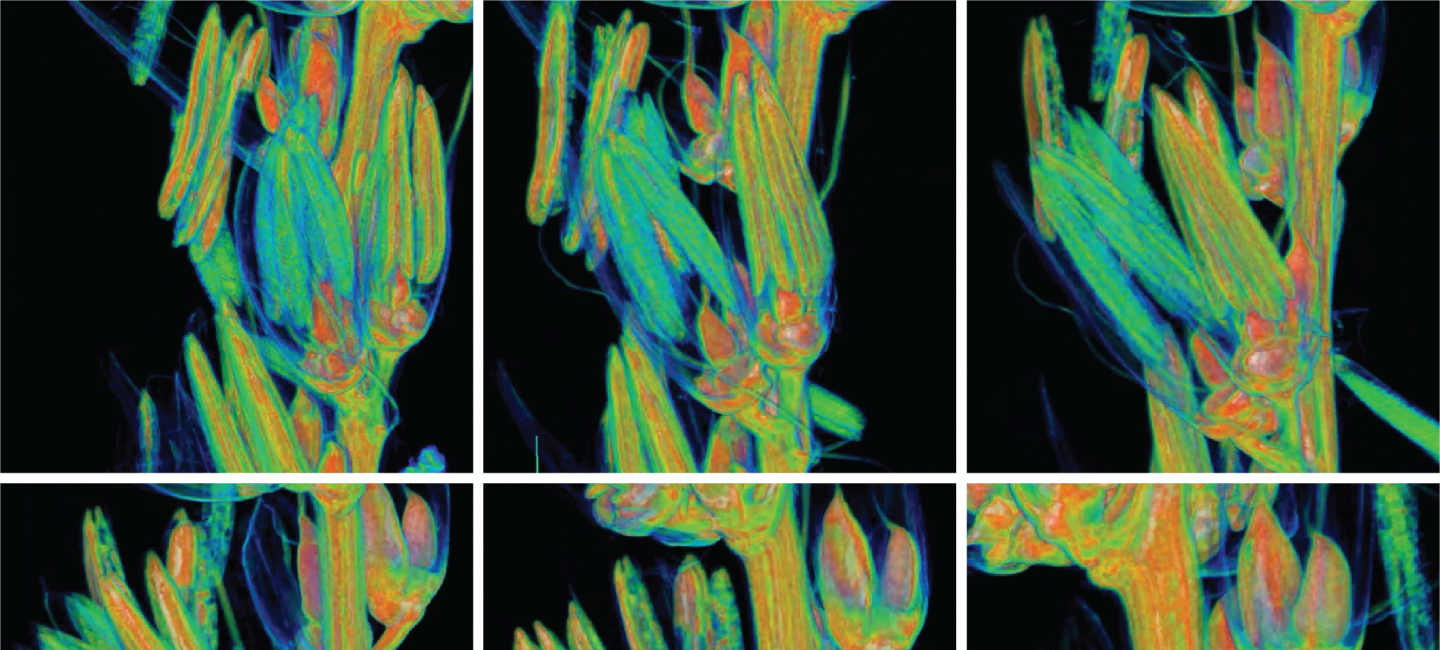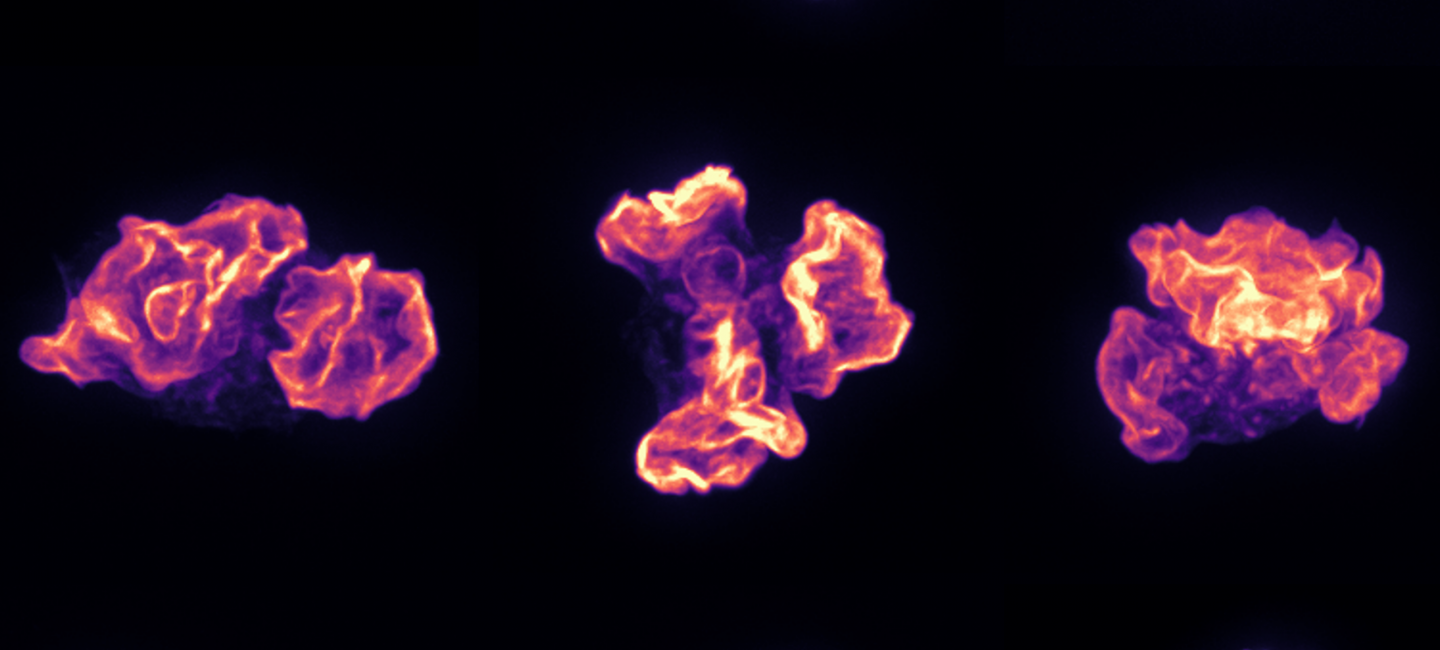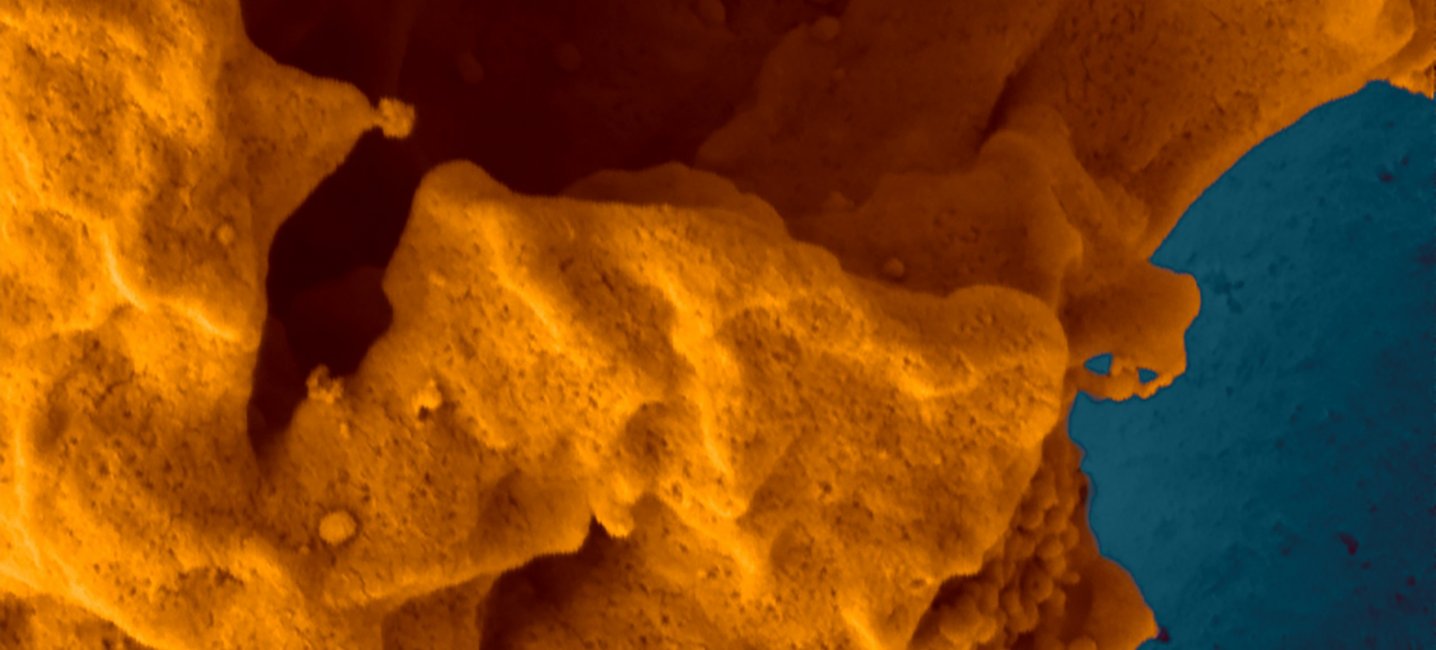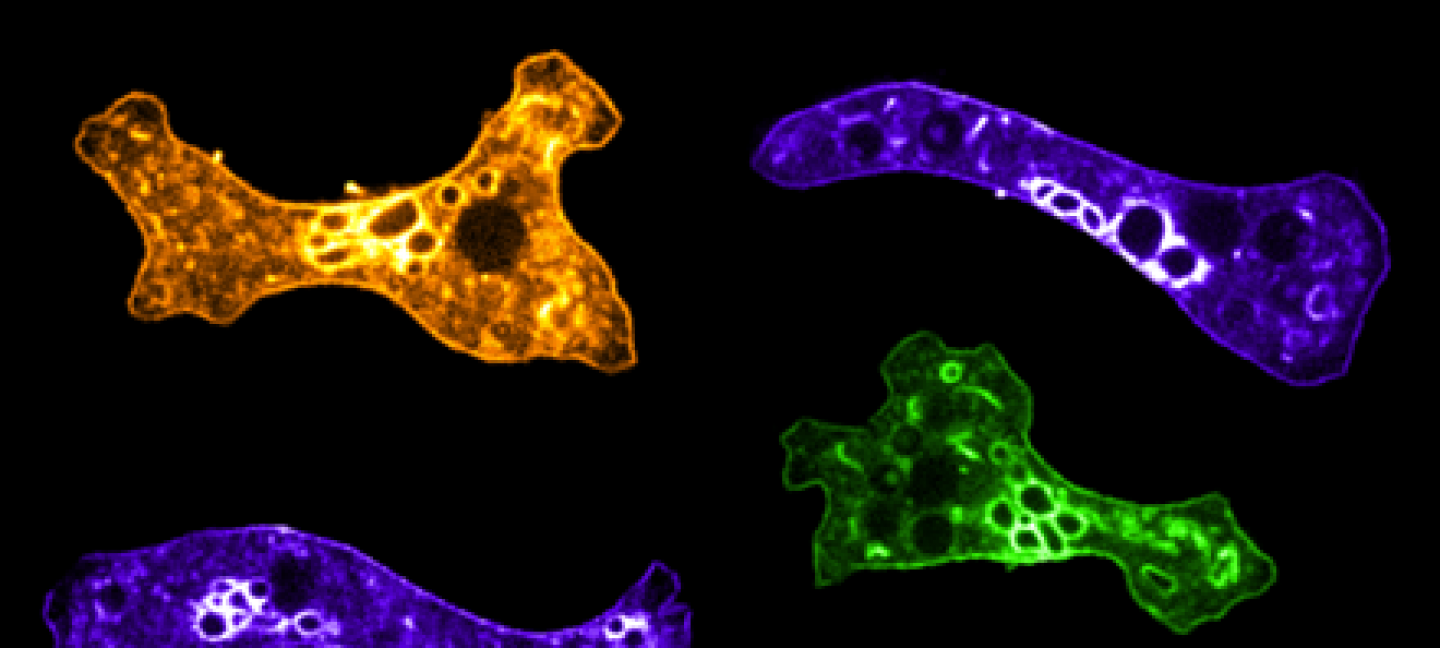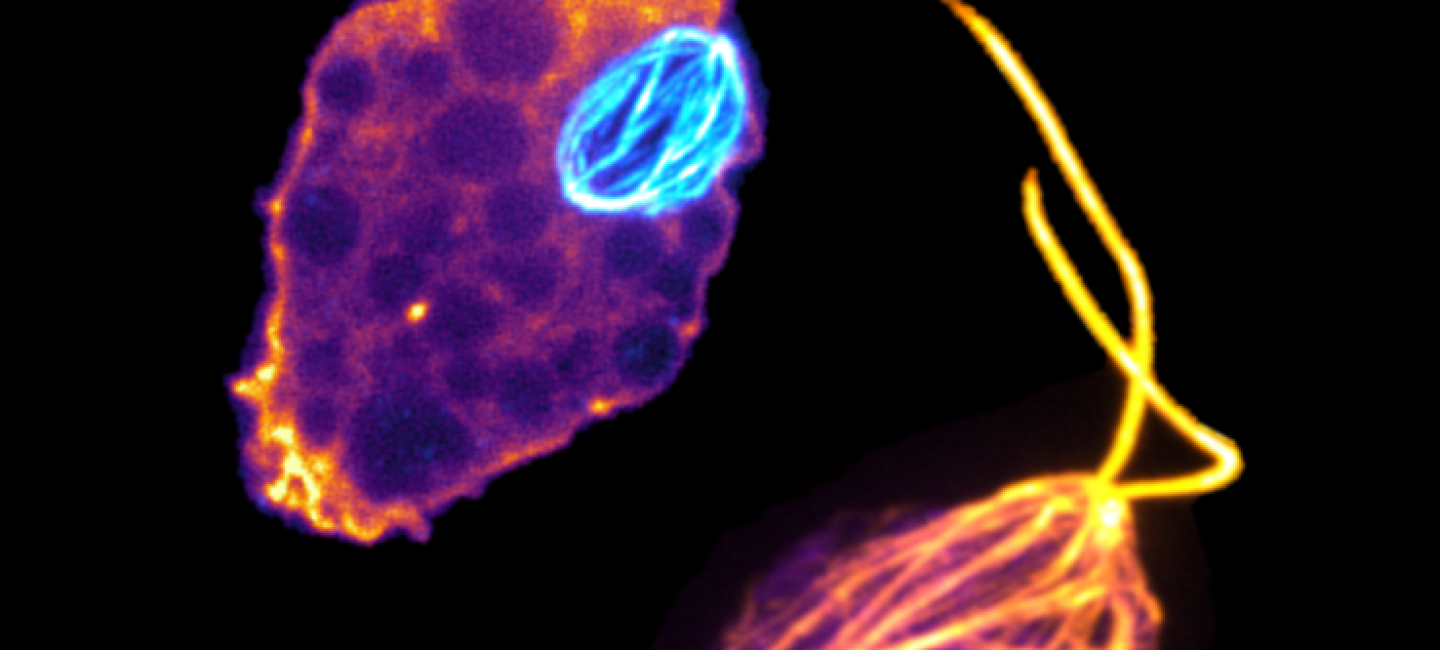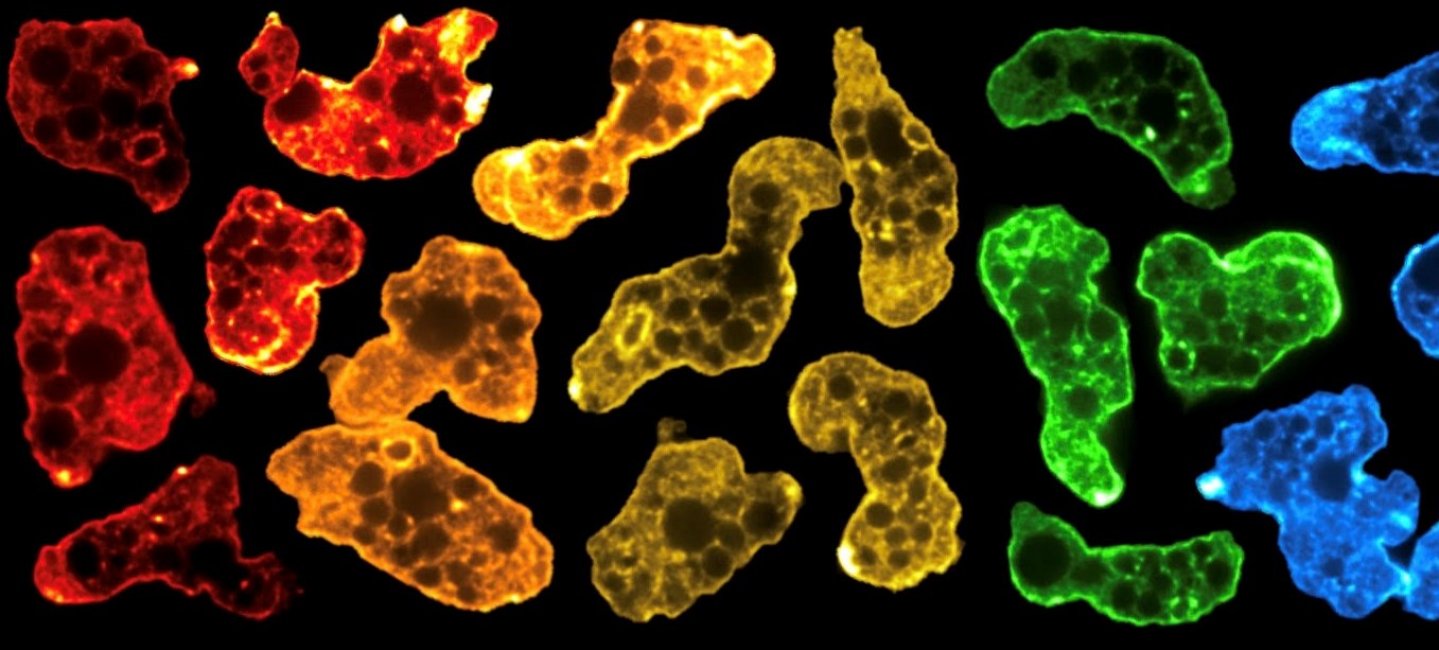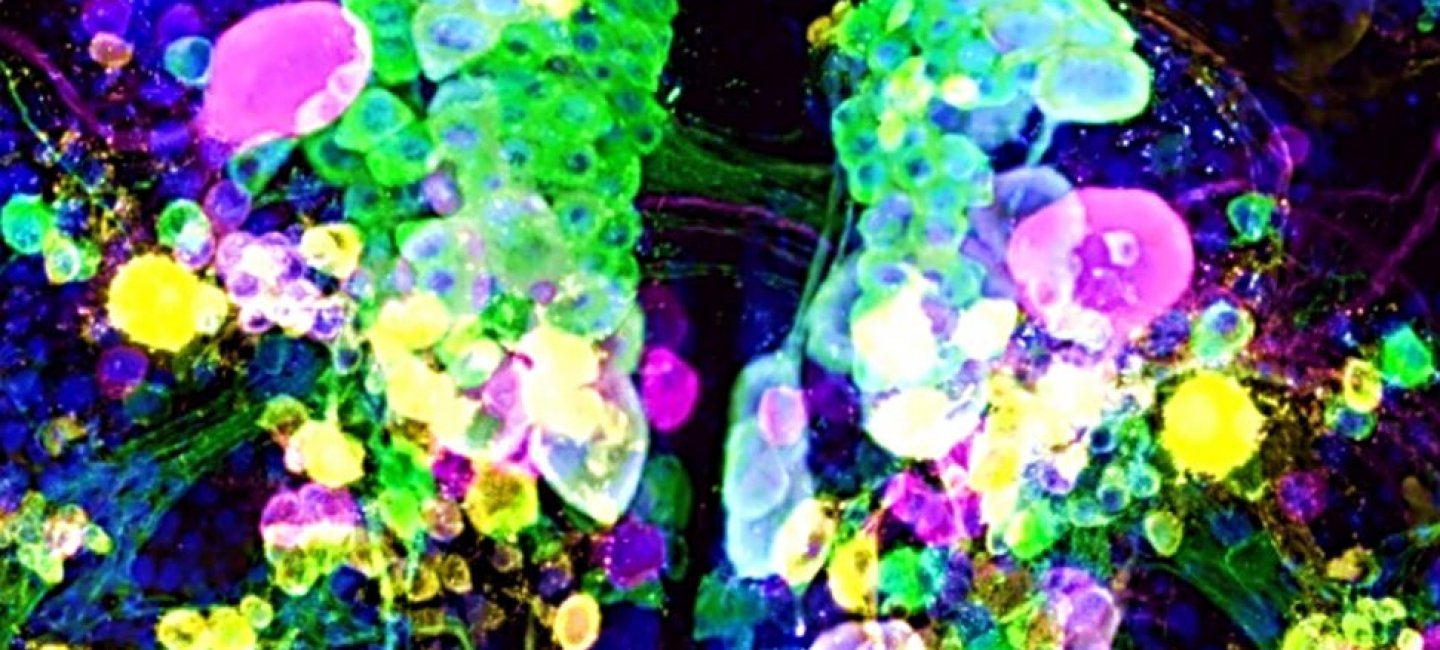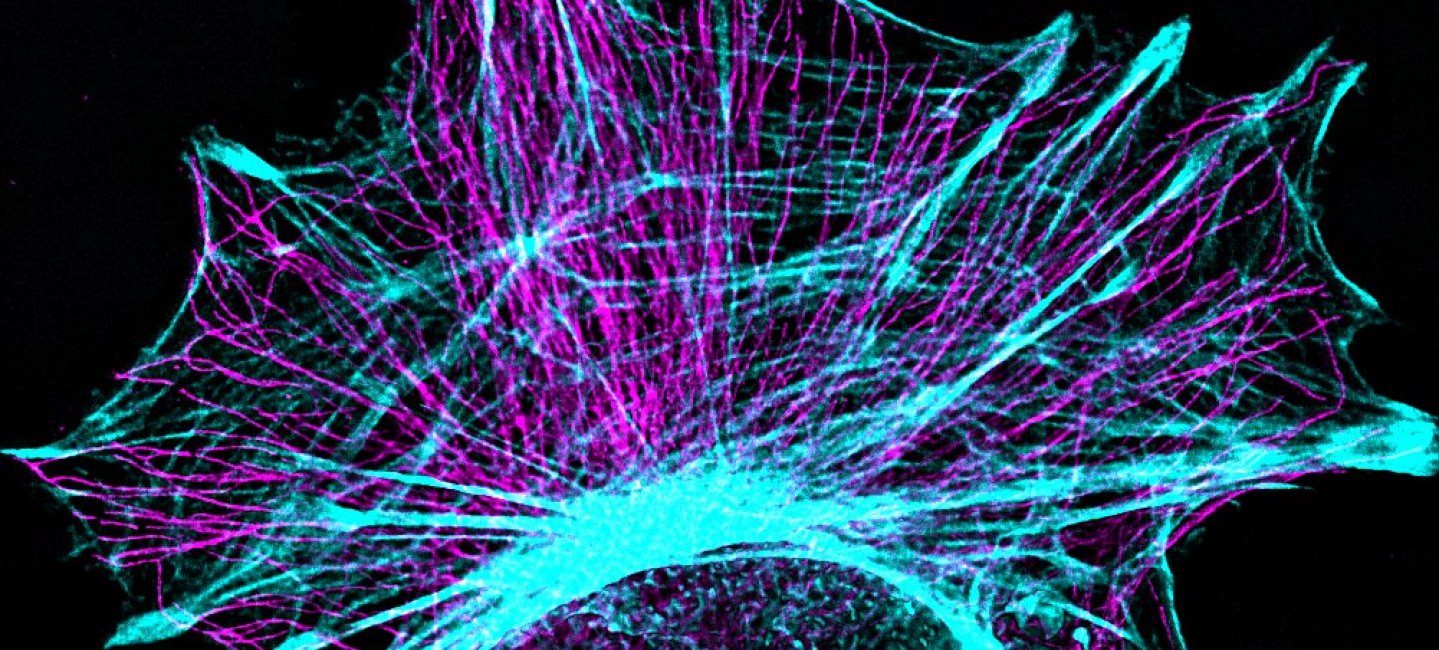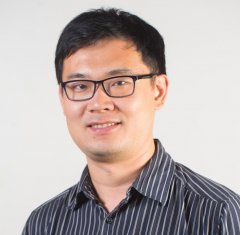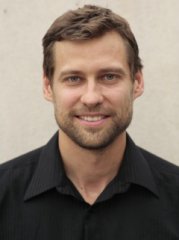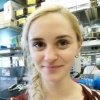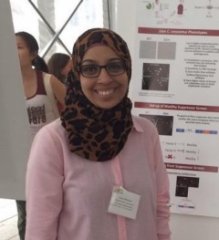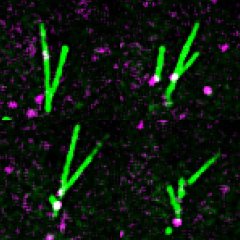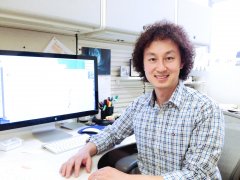News & Announcements
Bioanalytical Chemist is Inventing New DNA-based Probes
Bioanalytical Chemist is Inventing New DNA-based Probes
Assistant professor Mingxu You, chemistry, recently received a five-year, $1.9 million NIH Maximizing Investigators’ Research Award (MIRA) to fund his research in developing new tools – DNA-based probes – to quantify intercellular mechanical forces and understand a variety of mechano-sensitive cell signaling events at the molecular level.
The You Lab, which includes postdoctoral researcher Bin Zhao and chemistry Ph.D. students Yousef Baheri and Puspam Keshri, will collaborate with other MCB faculty, including Tom Maresca in Biology, Barbara Osborne and Lisa Minter in Veterinary and Animal Sciences, and Yubing Sun in Mechanical and Industrial Engineering, to further develop these DNA-based tools to visualize, monitor and quantify such cellular forces. Read more
UMass Amherst-led Cross-disciplinary Research Examines Fertility Impacts of Male Environmental Exposure
UMass Amherst-led Cross-disciplinary Research Examines Fertility Impacts of Male Environmental Exposure
A cross-disciplinary team of scientists, led by University of Massachusetts Amherst environmental epigeneticist Richard Pilsner, will use a three-year, $1.6 million grant from the National Institute of Environmental Health Sciences (NIEHS) to expand research into the impact of phthalate exposure on male fertility. The three-year grant is part of the NIEHS initiative known as ViCTER (Virtual Consortium for Translational/Transdisciplinary Environmental Research). The program aims to stimulate unconventional partnerships among environmental health scientists in an effort to accelerate breakthroughs in research.
The new award’s co-investigators are reproductive biologists Pablo Visconti, a UMass Amherst professor of veterinary and animal sciences, and Sarah Kimmins, associate professor and Canada Research Chair in Epigenetics, Reproduction and Development at McGill University in Montreal. Read more
Lauren Andrews receives Collaborative Research Seed Grant
Lauren Andrews receives Collaborative Research Seed Grant
The recipients of ADVANCE’s first Collaborative Research Seed Grants have been announced. The competitive grants aim to foster the development of innovative and equitable collaborative research projects among faculty. Lauren Andrews and Jessica Schiffman have received the award for their project, "Elucidating mechanoselective adhesion and antibiotic resistance for catheter-associated bacterial infections using genomics approaches.”
The project explores the genetic underpinnings of bacterial cell adhesion to catheter coatings to inform the development of infection-resistant catheters. This interdisciplinary team combines Schiffman’s expertise in materials science with Andrews’ in synthetic biology to study how the mechano-chemical properties of catheters impact cell adhesion and in the development of CRISPR-based genomic tools for uropathogenic E.coli and a novel library of tunable biomaterials. Read more
UMass Amherst Institute of Applied Life Sciences Announces Winners of the Inaugural Manning/IALS Prize
UMass Amherst Institute of Applied Life Sciences Announces Winners of the Inaugural Manning/IALS Prize
Peter Reinhart, director of the University of Massachusetts Amherst’s Institute of Applied Life Sciences (IALS), has announced the research teams that have been named recipients of the first Manning/IALS Seed Grants. The awards will support next steps in their research such as proof-of-concept studies and business development, fundamental research into new products, technologies and services to benefit human health and wellbeing. Faculty researchers will receive seed funding of $100,000 each over three years, along with business training and mentorship from IALS, the College of Natural Sciences, the Berthiaume Center for Entrepreneurship and the Isenberg School of Management, among others.
Earlier this year, alumnus Paul Manning and his wife, Diane, committed $1 million through their family foundation to establish the Manning Innovation Program. It provides three years of support in advancing a robust and sustainable pipeline of applied and translational research projects from UMass Amherst. The seed grants were awarded after a competitive process that narrowed 35 teams to six winners, including the following MCB faculty:
- Jeanne Hardy, chemistry, “Development of Potent Zika Virus Protease Inhibitors”
- S. “Thai” Thayumanavan, chemistry, and Steve Faraci, “Pre-Clinical efficacy evaluation of liver-targeted, thyromimetic-encapsulated IntelliGels for the treatment of non-alcoholic steatohepatitis (NASH)”
- Neil St. John Forbes, chemical engineering, “Bacterial delivery of therapeutic peptides to treat advanced hepatocellular carcinoma (HCC)
- Shelly Peyton, chemical engineering, “GelTech” to enable tissue-specific drug discovery and help eliminate potential false-positive hits from screening
Constance Angelou wins American Association of Immunologists Young Investigator Award
Constance Angelou wins American Association of Immunologists Young Investigator Award
Constance Angelou received the American Association of Immunologists' (AAI) Young Investigator Award for her poster presentation at the 2019 New England Immunology Conference in Woods Hole, MA. Constance conducts research in the Pobezinsky Lab, and her poster was titled, "Autoreactive Th17 cell differentiation is negatively regulated by let-7 microRNAs in a mouse model of multiple sclerosis."
HHMI Gilliam Fellowship to Support Doctoral Student-Faculty Mentor Pair
HHMI Gilliam Fellowship to Support Doctoral Student-Faculty Mentor Pair
Molecular and cellular biology doctoral student Samar Mahmoud was recently named a Gilliam Mentor Training Fellow by the Howard Hughes Medical Institute (HHMI), an award that will support her early scientific career in the lab of Peter Chien, biochemistry and molecular biology. She will receive funds for a stipend and education costs, while Chien will embark on a year of mentor training from HHMI. The goal is to improve faculty mentoring skills, support new scientific leaders and foster diversity and inclusion in science, the institute points out.
Mahmoud and Chien are one of 44 advisor student pairs awarded the coveted fellowship in 2019. Read more
UMass Amherst Researchers Awarded $3.1 Million NIH Grant for Breast Cancer Risk Study
UMass Amherst Researchers Awarded $3.1 Million NIH Grant for Breast Cancer Risk Study
A University of Massachusetts Amherst interdisciplinary research team has received a $3.1 million grant from the National Institutes of Health (NIH) to measure the impact of a diet rich in fruits and vegetables on the breast cancer risk of lactating women. In the unprecedented research, called the New Moms Wellness Study, environmental toxicologist Kathleen Arcaro, nutritionist Lindiwe Sibeko and cancer epidemiologist Susan Sturgeon will use breastmilk to assess whether eating at least eight to 10 daily servings of deeply pigmented and nutrient-dense fruits and vegetables reduces biomarkers of breast cancer risk. Read more
How Microtubules Branch in New Directions, a First Look in Animals
How Microtubules Branch in New Directions, a First Look in Animals
Cell biologist Thomas Maresca and senior research fellow Vikash Verma at the University of Massachusetts Amherst say they have, for the first time, directly observed and recorded in animal cells a pathway called branching microtubule nucleation, a mechanism in cell division that had been imaged in cellular extracts and plant cells but not directly observed in animal cells. Details appear this month in the Journal of Cell Biology.
In this work supported by NIH’s National Institute of General Medical Sciences, the researchers set out to explore specific mechanics of cell division, what Verma calls “the rules of faithful and complete division,” in fruit fly cells. In particular, they want to understand how structures called microtubules help to define where the cell splits in half during the division process. Read more
Food Scientists Create Innovative Model for NASA To Predict Vitamin Levels in Spaceflight Food
Food Scientists Create Innovative Model for NASA To Predict Vitamin Levels in Spaceflight Food
A team of food scientists at the University of Massachusetts Amherst has developed a groundbreaking, user-friendly mathematical model for NASA to help ensure that astronauts’ food remains rich in nutrients during extended missions in space. The new research, published in the journal Food Chemistry by senior author Hang Xiao, gives NASA a time-saving shortcut to predict the degradation of vitamins in spaceflight food over time and more accurately and efficiently schedule resupplying trips. The investigation was funded with a $982,685 grant from NASA. Read more
MCB Retreat at Stratton
MCB Retreat at Stratton
